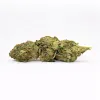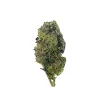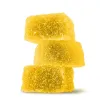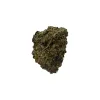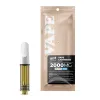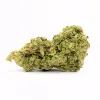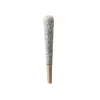Valencene, a lesser-known terpene with a unique aroma and potential therapeutic properties, has garnered attention in the realm of natural compounds.
In this article, we delve into the frequently asked questions about valencene, its diverse effects, and its presence in various botanical sources. From its molecular structure to its potential impacts on health and well-being, we'll uncover the essential aspects of this intriguing compound.
What is the Valencene Terpene?
Valencene is a sesquiterpene, a class of terpenes composed of three isoprene units and 15 carbon atoms. This terpene is a natural chemical compound found in various plant species and is particularly abundant in the essential oils of citrus fruits such as Valencia oranges, tangerines, clementines, and grapefruits.
Valencene's aromatic profile is characterized by sweet and fresh citrusy notes, reminiscent of orange peel, with subtle hints of wood. It's responsible for the juicy orange flavors with a touch of woodiness and tropical fruits that it imparts.
In the cannabis world, valencene plays a significant role in shaping the aromas and flavors of certain strains. While it might not be as well-known as some other terpenes, valencene contributes to strains' unique profiles. It's found in strains like:
-
Tangie
-
Sour Diesel
-
Agent Orange
-
Appalachia
Beyond its aromatic qualities, valencene has diverse commercial applications outside the realm of cannabis. It is commonly utilized in cleaning products, cosmetics, and insect repellents due to its pleasant scent and potential insect-repelling properties.
Valencene is also of particular interest in the realm of health and wellness due to its potential therapeutic benefits.
What Does the Valencene Terpene Do?
Valencene's primary role is evident in its aromatic and flavor contributions. When present in strains of cannabis, it enriches the sensory experience by infusing them with citrusy and fruity notes, often resembling the zest of oranges and tangerines.
This aromatic quality not only enhances the enjoyment of cannabis consumption but also plays a crucial role in the entourage effect—the phenomenon where various compounds, including terpenes and cannabinoids, synergistically interact to amplify therapeutic effects.
Beyond its aromatic charm, valencene is being investigated for its potential health-promoting effects. Although research is ongoing, several areas of interest have emerged.
Valencene has demonstrated anti-inflammatory effects in preclinical studies. By potentially modulating inflammatory pathways, it could offer relief from inflammation-related discomfort and contribute to overall wellness.
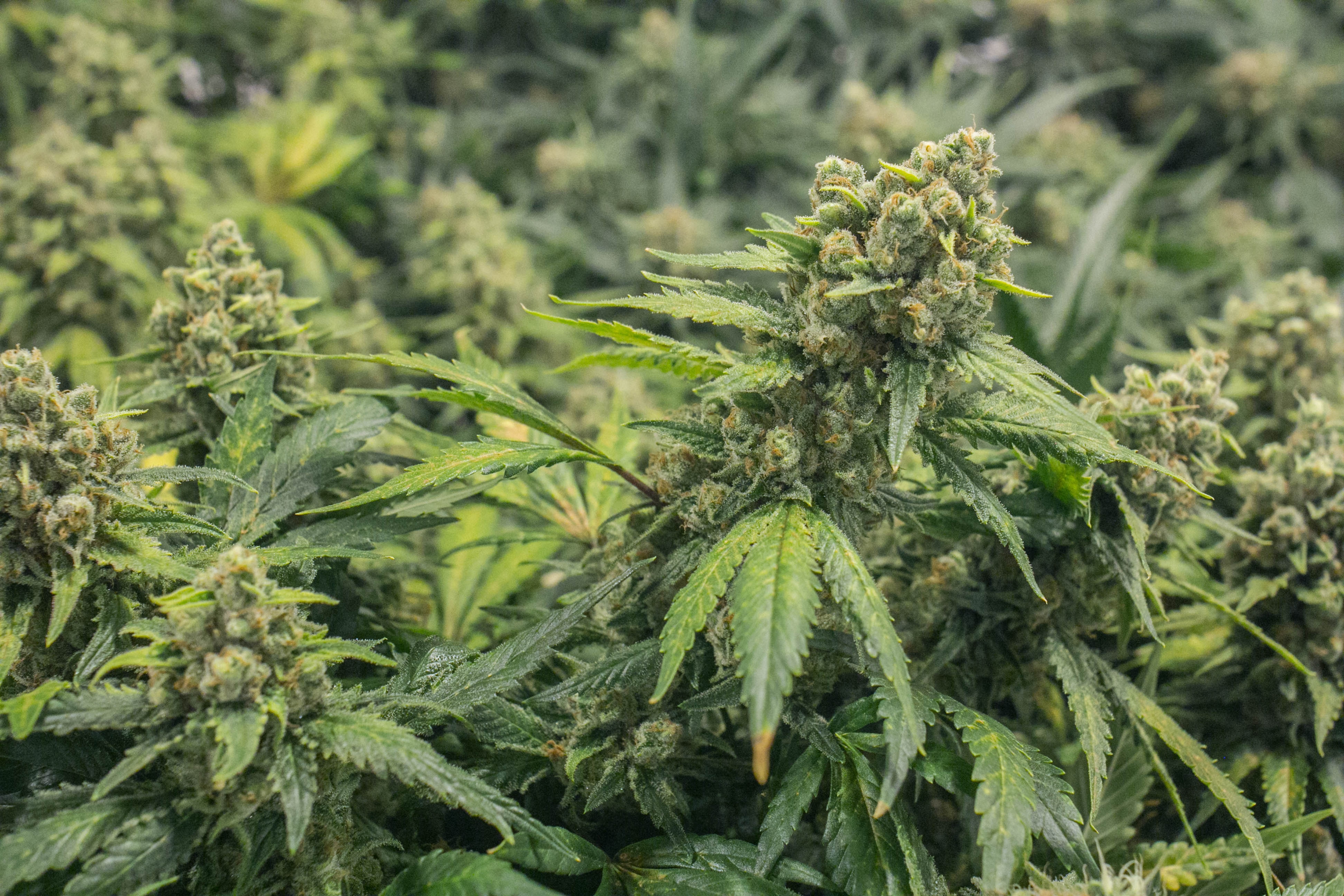
Role and Effects of the Valencene Terpene
Valencene, a sesquiterpene characterized by its enchanting citrusy aroma, plays a crucial role in shaping the sensory experiences of various plant-based products, including cannabis strains. While often overlooked, its aromatic influence is undeniable.
Found in notable quantities in citrus fruits like oranges, tangerines, and grapefruits, valencene contributes a sweet and fresh scent with underlying notes of woodiness. Beyond its olfactory impact, valencene holds promise in diverse health-related arenas due to its potential therapeutic effects.
Research into valencene's effects has unveiled a range of potential benefits, making it a compound of interest for both health enthusiasts and researchers. Studies suggest that valencene possesses anti-inflammatory properties, indicating its potential to contribute to the management of inflammation-related discomfort.
Furthermore, its role in skin protection cannot be overlooked, with evidence indicating its ability to enhance the skin's barrier function and potentially counteract the effects of UV-induced photoaging. Additionally, valencene shows promise in the realm of allergies, with early research pointing to inhibitory effects on enzymes linked to allergic responses.
The terpene's ability to traverse the blood-brain barrier also hints at its possible neuroprotective capabilities, although more investigation is needed to confirm these hypotheses.
Valencene's significance transcends its aroma and potential health benefits. Its pleasant scent has found a place in various commercial applications, from cosmetics to cleaning products, owing to its natural fragrance.
Moreover, as a precursor to nootkatone, the compound responsible for grapefruit's unique aroma, valencene is an essential ingredient in insecticides due to its insect-repelling properties.
As research into terpenes like valencene continues, our understanding of their intricate effects on human health and well-being is poised to expand.
While much remains to be discovered about the full extent of valencene's role and effects, its aromatic allure and therapeutic potential make it a fascinating subject of exploration in both the scientific and consumer realms.
Some effects of the valencene terpene include:
-
Aromatic influence in cannabis and plant-based products
-
Anti-inflammatory properties
-
Skin protection and potential against photoaging
-
Potential anti-allergic effects
-
Speculated neuroprotective activity
-
Synergistic effects of chemotherapy drugs
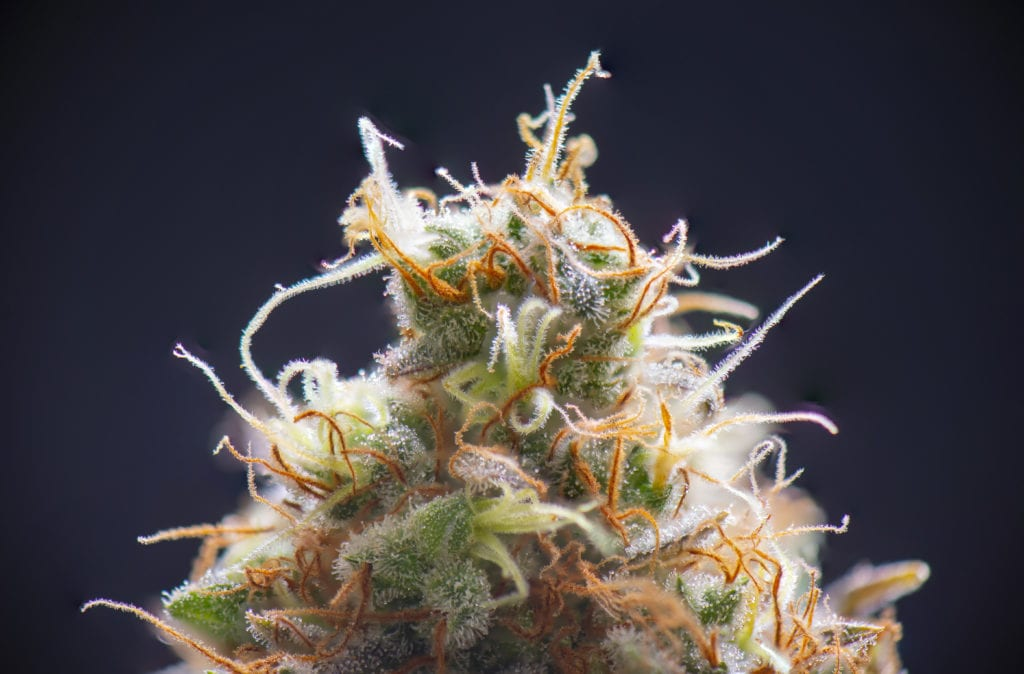
Valencene in Nature and Botanical Sources
Valencene's role in shaping the sensory experiences of plants cannot be overstated, particularly in the realm of citrus fruits. It is this terpene that infuses oranges, tangerines, clementines, and grapefruits with their distinctive sweet and fresh scent, often accompanied by subtle woodiness.
The aromatic profile of valencene adds complexity and depth to these fruits, making them universally recognized and cherished for their enticing fragrances. This terpene has the power to evoke memories of sunny orchards and refreshing citrus indulgence with every whiff.
While valencene's contribution to the world of citrus fruits is undeniable, its presence extends to other botanical sources as well. In some cannabis strains, valencene introduces citrusy and fruity notes, elevating their aromatic profiles to new heights.
Beyond cannabis, valencene-rich plants like Chinese bayberry and trailing lantana also benefit from its presence, endowing them with unique aromas and potential therapeutic attributes.
Valencene's prevalence in botanical sources, notably citrus fruits, imparts a unique charm that transcends mere aroma. It influences the flavors and aromas of various plant species, enhancing sensory experiences across the board.
With its presence in iconic citrus fruits and its role in shaping the aromatic profiles of cannabis strains and other plants, valencene stands as a testament to the botanical world's intricate chemistry and its ability to captivate our senses.
Sources of Valencene: From Hops to Cannabis and More
There are many things that have valencene on the composition, the most common ones are:
|
Type |
Description |
Additional Information |
|---|---|---|
|
Hops |
Flowers used in brewing beer that contain bitter acids that provide relaxation and euphoria. |
Hops contain the phytochemical humulone which is converted into the compound humulinone during brewing, which activates GABA receptors. |
|
Cannabis |
Psychoactive plant that contains THC, CBD, and other cannabinoids that alter mood and perception. |
THC provides the "high" feeling by activating CB1 receptors. CBD provides relaxation and anti-anxiety effects. Over 500 compounds identified in the cannabis plant. |
|
Kava |
Root traditionally used to make a ceremonial drink in the South Pacific. Contains kavalactones that provide sedative effects. |
Mostly consumed as a beverage but also available in capsule form. Should not be combined with alcohol or medications. |
|
Passionflower |
Herb traditionally used for anxiety and sleep issues. Contains alkaloids like harman that may affect GABA receptors. |
Often consumed as a tea or supplement. May cause drowsiness if combined with other sedatives. |
|
Kratom |
Leaves of a Southeast Asian tree traditionally used as a stimulant or sedative depending on dose. Contains mitragynine that affects opioid receptors. |
Mainly consumed as tea. High doses can be addictive. Not approved for human consumption in many countries. |
What is the Valencene Terpene in Weed?
Valencene, specifically, is a sesquiterpene known for its sweet and fresh citrusy aroma, often reminiscent of oranges and tangerines. It is found in various cannabis strains and is responsible for infusing these strains with its characteristic citrus notes.
Strains that contain high levels of valencene often exhibit a strong orange zest scent, which can contribute to a more uplifting and energizing experience for users.
In addition to its aromatic qualities, the valencene terpene might also contribute to some of the potential health benefits associated with cannabis consumption.
Research is ongoing, but preliminary studies suggest that valencene could have anti-inflammatory, anti-allergic, and neuroprotective properties, among other potential effects. However, it's important to note that the full extent of valencene's effects on health and well-being in the context of cannabis consumption is still being explored by researchers.
Is Valencene Polar or Non-Polar?
Valencene, with the chemical formula C15H24, stands as a notable sesquiterpene and polycyclic olefin. When delving into its polarity, one must examine the intricate dance of its atoms and charges. In the realm of molecular geometry, the question arises: is valencene polar or non-polar?
With its multi-layered structure, sesquiterpenes like valencene often exhibit complexity due to multiple carbon-carbon double bonds. This structural intricacy tends to lean toward non-polarity, as symmetry plays a crucial role.
In valencene's case, the arrangement of carbon (C) and hydrogen (H) atoms prevails, both of which are non-polar elements.
Valencene's symmetrical nature, highlighted by its polycyclic structure, further cements its nonpolar character. In essence, the lack of electronegative elements such as oxygen or nitrogen, combined with the uniform distribution of atoms, yields a molecule with minimal charge separation.
Is the Valencene Terpene Safe?
The valencene terpene has garnered interest not only for its aromatic properties but also for its potential health benefits. While valencene is generally considered safe when encountered in the natural context of fruits and plants, its isolated form and concentrated applications warrant careful consideration.
In its natural setting, valencene is commonly found in citrus fruits such as oranges and tangerines, contributing to their pleasant aromas and flavors.
These fruits have a long history of safe consumption, and the small amounts of valencene they contain are unlikely to pose significant risks for most individuals. However, as with any natural compound, individual sensitivities or allergies should be taken into account.
The valencene terpene found in its natural sources like citrus fruits appears to be safe for most people when consumed as part of a balanced diet. However, concentrated applications of valencene in isolated forms may pose risks, particularly for those with sensitivities.
Careful consideration, patch testing, and moderation are essential when using products containing concentrated valencene to ensure a safe and enjoyable experience.
Health Benefits of Valencene
Valencene, a sesquiterpene present in citrus fruits and certain cannabis strains, has piqued interest for its possible health benefits. While research is ongoing and more evidence is needed, initial studies suggest that valencene holds promise in several areas of well-being.
One potential health benefit of valencene lies in its anti-inflammatory properties. Studies indicate that this compound might help modulate inflammatory pathways, which could be valuable in managing inflammation-related discomfort and promoting overall health.
Additionally, valencene's potential as a skin protectant is intriguing. Research suggests that it could enhance the skin's barrier function and protect against photoaging induced by UV rays, potentially contributing to skin health and vitality.
Valencene's role in potential allergy management is another avenue of exploration. Early research suggests that it could inhibit enzymes associated with allergic responses, which may open new possibilities for addressing allergies.
However, it's important to note that while these preliminary findings are promising, more comprehensive studies are needed to establish the full scope of valencene's health benefits and the mechanisms underlying its effects.
As the scientific community continues to delve into this sesquiterpene's potential, we gain valuable insights into the complex interactions between natural compounds and human wellness.
Does Valencene Cause Anxiety?
Emerging insights from anecdotal reports and preliminary research shed light on Valencene's potential impact on mood. Similar to Limonene, Valencene's aroma has been associated with positive emotions.
Users often describe sensations of mild euphoria, mental clarity, and a heightened sense of well-being. Its ability to influence serotonin release by crossing the blood-brain barrier holds promise for alleviating anxiety and depression.
Valencene and Aromatherapy
Valencene, the sesquiterpene celebrated for its citrusy aroma, has emerged as a fascinating contender in the world of aromatherapy, where scents are harnessed for their potential to influence emotions and well-being.
While empirical research is still unfolding, valencene's aromatic allure and its interactions with olfactory receptors have ignited curiosity about its role in enhancing emotional experiences.
Olfaction, the sense of smell, is deeply intertwined with our emotions and memories. Valencene engages with olfactory receptors, initiating a cascade of neural signals that reach the brain's limbic system, the center of emotions.
This pathway provides a plausible explanation for aromatherapy's effects on mood. While the specific mechanisms remain to be fully elucidated, it's believed that valencene's aroma may trigger the release of neurotransmitters like serotonin and dopamine, which play pivotal roles in regulating mood and pleasure.
Scientific exploration into valencene's effects on mood is still a burgeoning field, but both research and anecdotal evidence offer intriguing glimpses. While limited studies directly focus on valencene, some research on citrus aromas as a whole suggests positive outcomes.
Citrus scents, including valencene's orange zest notes, have been associated with increased alertness, reduced stress, and improved mood. Anecdotal reports from aromatherapy enthusiasts also indicate that valencene-rich oils or products have contributed to feelings of upliftment and relaxation.
How Does Valencene Make You Feel?
Valencene, renowned for its enchanting blend of citrus and woody notes, holds the power to evoke a range of emotions and sensations, yet the response can be deeply individual.
The feelings sparked by valencene's aroma often stem from a delightful fusion of its fragrance, personal preferences, and the environment.
Reports from individuals suggest that valencene's aroma can also contribute to subtle yet notable changes in mood. The potential to induce a mild euphoria and uplifted spirits could be linked to its interaction with neurotransmitters like serotonin, which shape our emotional landscape.
However, these effects can vary greatly, influenced by personal factors, past experiences, and current emotional states. Whether valencene awakens a sense of tranquility, elation, or simply a pleasant ambiance, its aromatic journey through the senses is a uniquely personal and multisensory experience.
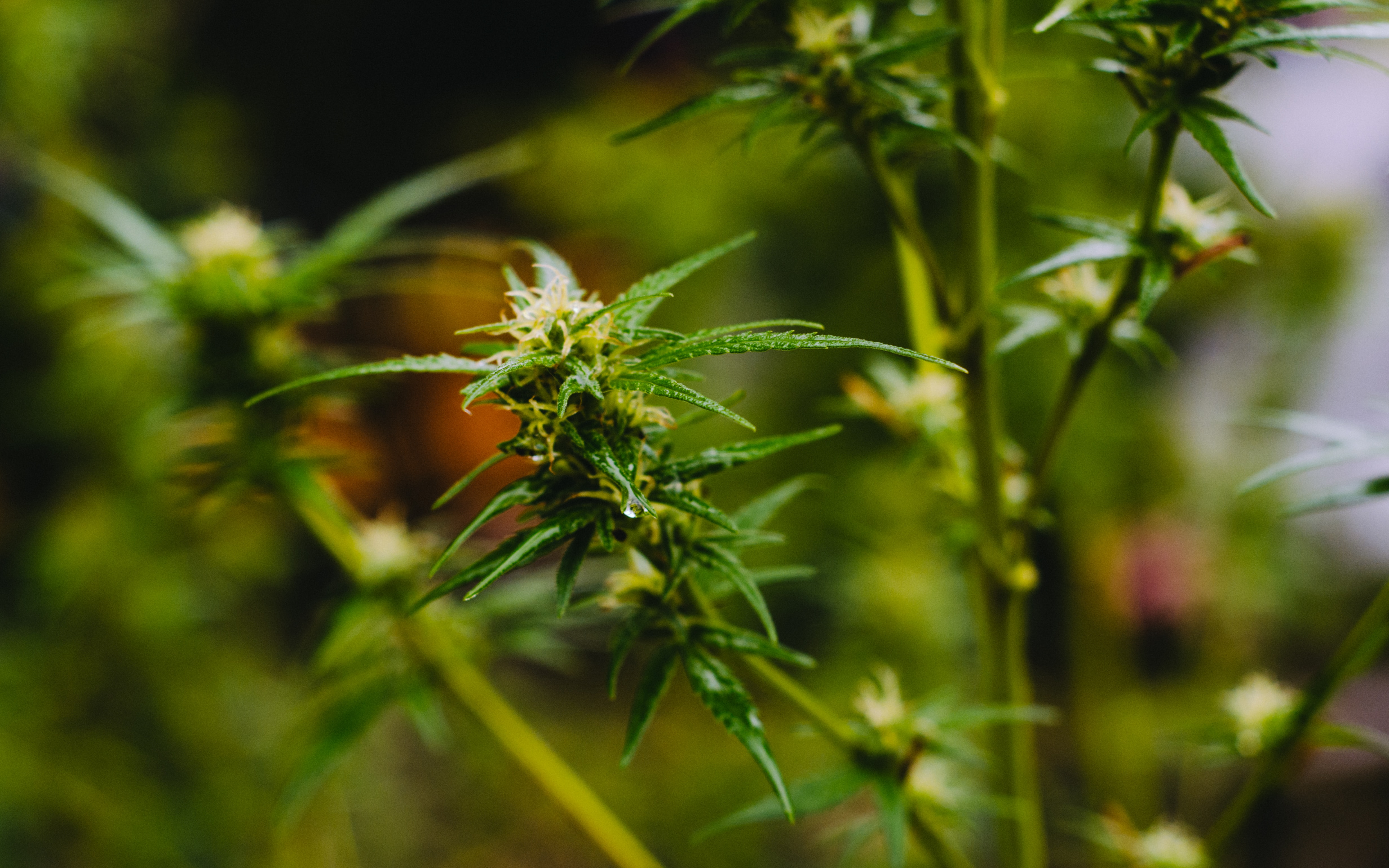
Aromatic Influence: How Valencene Shapes Sensory Experiences:
Valencene, a terpene celebrated for its sweet, citrusy, and woody aroma, is a master of sensory orchestration, crafting experiences that transcend mere scents. This aromatic compound weaves its magic across a spectrum of botanical sources, infusing them with a distinctive charm that goes beyond the olfactory realm.
The sensory journey ignited by valencene-rich botanicals is a multisensory affair. Encountering the aroma of citrus fruits like grapefruit, tangerine, or orange can transport individuals to sun-soaked orchards, where the tangy zest and the earthy undertones intermingle.
The aromatic profile of valencene whispers tales of freshness and vitality, inducing a sensation akin to the gentle caress of a warm breeze on a serene day. This multisensory symphony can evoke vivid memories and emotions, often accompanied by a surge of positivity.
Valencene's aromatic influence is a journey that traverses senses and emotions. Its scent, evocative of sun-drenched citrus groves, intertwines with the potential to uplift moods and infuse relaxation into moments.
The dance of valencene's aroma on the senses is an invitation to embark on a sensory voyage that enriches not only our olfactory experiences but our emotional landscapes as well.
Handling and Toxicity
Valencene is considered nontoxic, but moderation is always key. Too much valencene might cause some stomach discomfort, so it's best to stick to recommended dosages.
As with any natural compound, it's always a good idea to have a chat with your healthcare pro before diving headfirst into a valencene adventure.
Is Valencene Toxic?
The good news is that valencene is generally safe for most folks when used as intended.
Is Valencene Flammable?
Valencene is considered flammable, so it's a good idea to keep it away from open flames and high heat.
Wrapping Up
Valencene, a terpene with its unique citrusy aroma and potential health-enhancing properties, continues to captivate researchers and wellness enthusiasts. Its presence in various plants and its potential effects on mood enhancement and relaxation make it a subject of significant interest.
As our understanding of valencene expands through scientific exploration, we uncover new dimensions of its effects and applications, showcasing its potential to enrich sensory experiences and contribute to holistic well-being.



